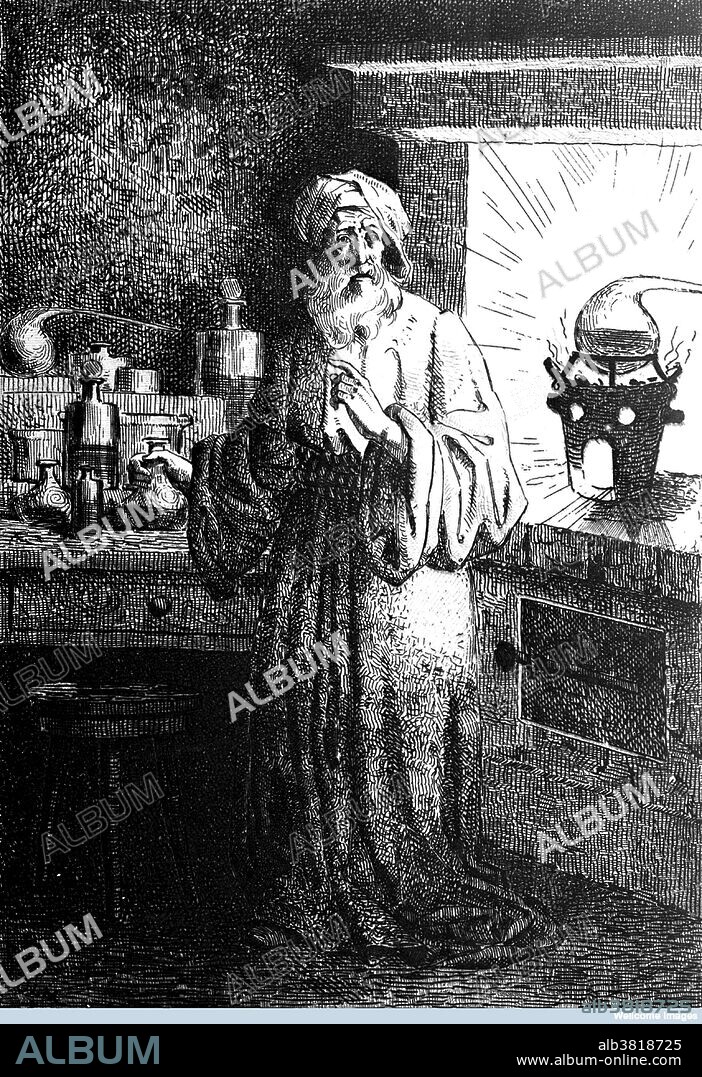alb3818725
Hennig Brand, German Alchemist

|
Ajouter à une autre Lightbox |
|
Ajouter à une autre Lightbox |



Avez-vous déjà un compte? S'identifier
Vous n'avez pas de compte ? S'inscrire
Acheter cette image.
Sélectionnez l'usage:

Titre:
Hennig Brand, German Alchemist
Légende:
Voir la traduction automatique
Hennig Brand (1630 -1692/1710) was a German merchant and alchemist. Brand searched for the "philosopher's stone", a substance which supposedly transformed base metals into gold. By the time his first wife died he had exhausted her money on this pursuit. He then married his second wife Margaretha, a wealthy widow whose financial resources allowed him to continue the search. Around 1669 he heated residues from boiled-down urine on his furnace until the retort was red hot, glowing fumes filled it and liquid dripped out, bursting into flames. He captured the liquid in a jar and covered it, where it solidified and continued to give off a pale-green glow. What he collected was phosphorus, which he named from the Greek word for "light-bearing" or "light-bearer." Phosphorus must have been awe-inspiring to an alchemist: it was a product of man, and seeming to glow with a "life force" that did not diminish over time. He kept his discovery secret and worked with the phosphorus trying unsuccessfully to produce gold.
Crédit:
Album / Science Source / Wellcome Images
Autorisations:
Taille de l'image:
3084 x 4500 px | 39.7 MB
Taille d'impression:
26.1 x 38.1 cm | 10.3 x 15.0 in (300 dpi)
Mots clés:
ALCHIMIE • ALLEMAND • ALLEMANDE • CÉLÈBRE • CELEBRITE • EUROPÉEN • HOMME • ILLUSTRATION • LABORATOIRE • LABORATOIRES • MARCHANDE • PERSONNAGES • PERSONNALITÉS • PERSONNE • PHOSPHORE • SCIENCE: LABORATOIRES


 Pinterest
Pinterest Twitter
Twitter Facebook
Facebook Copier le lien
Copier le lien Email
Email
